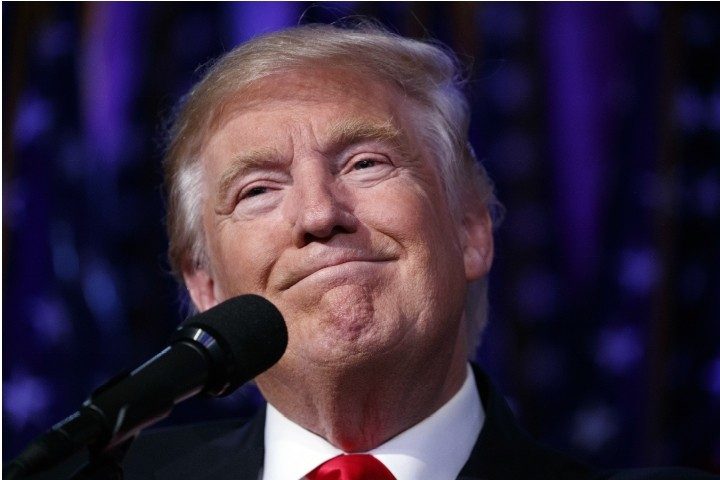
“The recording revealed that the Post misquoted Trump’s comments on the call,” the Washington Post admitted in a retraction late last week, in a reference to the December 2020 phone call made by then-President Donald Trump to Frances Watson, a top Georgia election official. Unfortunately, the call was reported in such a way that made it appear as if Trump was pressuring Georgia’s election officials to create votes for him, so he could win the state’s 16 electoral votes.
Some Democrats even cited the call as another “reason” that Trump should be impeached in the House of Representatives and then convicted in the Senate. And a local Democrat prosecutor has launched a criminal probe over the supposedly illegal phone call.
The Post’s erroneous version of the call was widely reported by other news outlets, and is no doubt firmly entrenched in the public’s mind as to what was really said.
The six-minute call between Trump and Frances Watson, the chief investigator of the Georgia secretary of state’s office, was published by the Wall Street Journal, and contrary to the initial reports, Trump never told anyone to “find the fraud.” Instead, Trump told Watson that she had the most important job in the country, and should review signatures going back several years. It is hardly “criminal” to urge a public official to do her job.
At the time, Watson was investigating charges of fraud in Cobb County, and Trump urged her to add Fulton County (the county that includes most of Atlanta, and is the most heavily populated county in the state) to her investigation. “If you can get to Fulton, you are going to find things that are going to be unbelievable,” Trump told Watson.
Because of the newly released recording, the Post said that the original headline and the text of the original story have now been “corrected to remove quotes misattributed to Trump.”
“The recording revealed that the Post misquoted Trump’s comments on the call, based on information provided by a source. Trump did not tell the investigator to ‘find the fraud,’ or say she would be ‘a national hero’ if she did so,” The Post admitted (Emphasis added). “Instead, Trump urged the investigator to scrutinize ballots in Fulton County, Ga., asserting she would find ‘dishonesty’ there. He also told her that she had the most important job in the country right now.”
Despite the reporting by the Wall Street Journal on the actual recording, and the retraction by the Washington Post, Fani Willis, the district attorney in Fulton County, a Democrat, is conducting a criminal investigation into Trump’s efforts to reverse the election results in the state.
When WSB-TV interviewed Watson after the recording was released, she said that she felt no pressure from Trump, although she said that she was surprised to get a call from the president. “It is something that is not expected, and as I mentioned in the call, I was shocked that he would take the time to do that.”
While Watson may very well have been “shocked” that Trump would “take the time” to pursue fraud in the state, Trump was well within his rights to urge election officials to do their jobs and insure a free and fair election. Certainly, there is nothing criminal about seeking a thorough investigation of potential fraud.
“All I want to do is this: I just want to find 11,780 votes,” Trump said in one telephone conversation with Brad Raffensperger on January 2nd. Raffensperger is the Georgia secretary of state, and in Georgia, is the official most responsible for conducting the elections, freely and fairly.
There is a widespread belief that Raffensperger failed to do that, particularly because he allowed Staci Abrams — the 2018 Democratic Party candidate for governor — to essentially dictate changes in Georgia’s election laws prior to the 2020 elections, without any authorization to do so from the Georgia Legislature. It is highly ironic that Democrats and their media allies have leveled intense criticism at Trump for refusing to concede the election, when Abrams never conceded her loss in 2018, as she still contends that she really won.
Because of the concessions made by Raffensperger to Abrams, the state of Georgia implemented many changes to its election system, including the notorious mail-in voting system that is clearly open to mass voter fraud. A bipartisan commission established after the controversial 2000 presidential election — in which Texas Governor George Bush narrowly bested Vice President Al Gore in Florida by less than 600 votes out of six million votes cast — chaired by former President Jimmy Carter and former U.S. Secretary of State James Baker specifically condemned mail-in voting.
In fact, that bipartisan commission condemned most of the things that are now being proposed in Congress as permanent changes to election procedures across the country.
The Washington Post should be commended for owning up to its mistaken reporting. They would deserve more commendation if they opened up an investigation to the massive fraud that tainted the 2020 presidential election.

